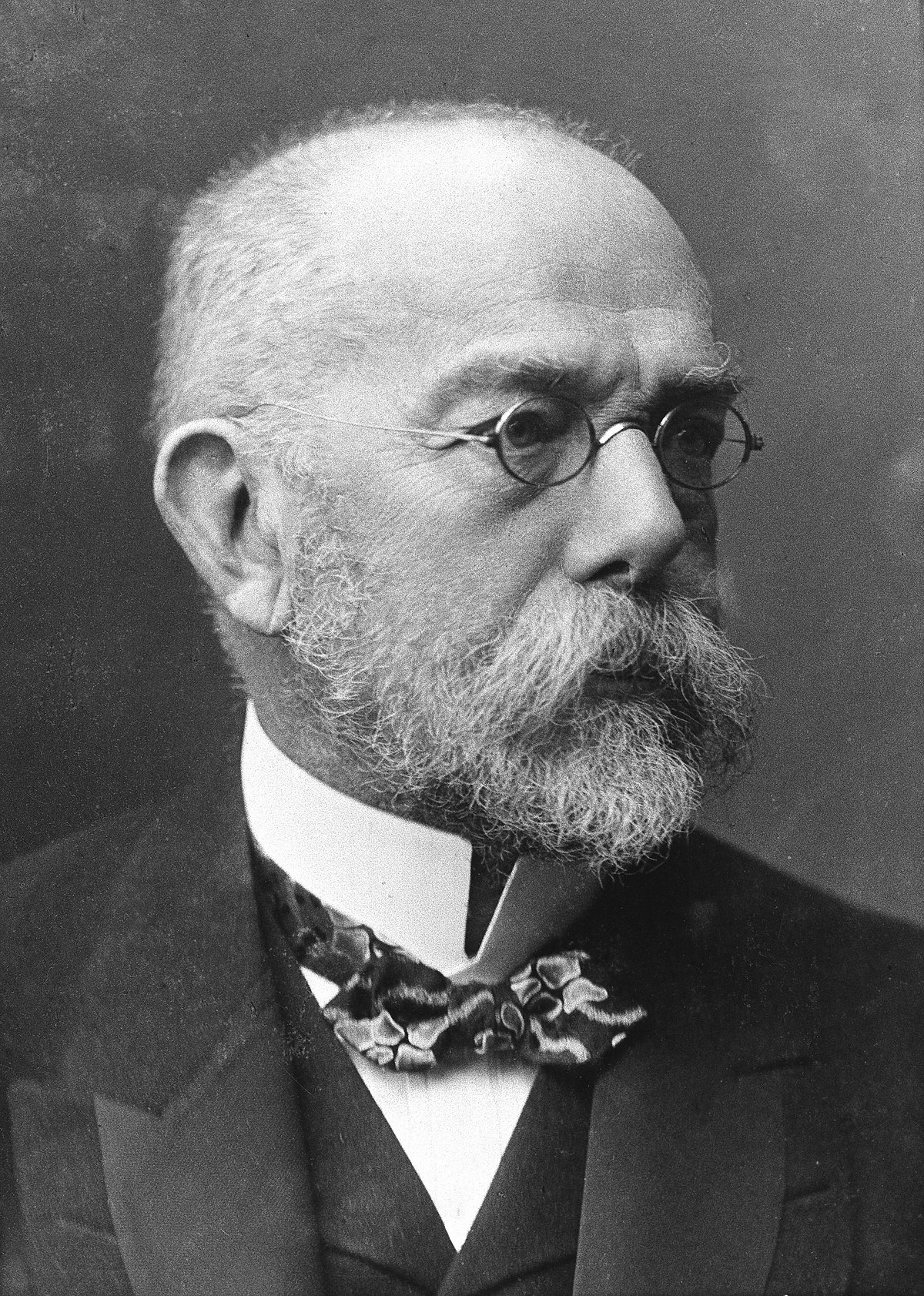Robert Koch: The Father of Modern Bacteriology
Robert Heinrich Hermann Koch (1843-1910) was a German physician and microbiologist whose discoveries laid the groundwork for modern bacteriology and infectious disease research. Born on December 11, 1843, in Clausthal, Germany, Koch showed an early interest in science and medicine, which led him to study medicine at the University of Göttingen, where he graduated in 1866.
Koch’s career began as a country doctor, but his fascination with microorganisms led him to the field of microbiology. His breakthrough came while he was working as a district medical officer in Wollstein (now Wolsztyn, Poland). Here, he developed novel methods for isolating and cultivating bacteria, which enabled him to identify specific pathogens responsible for diseases. His meticulous approach and innovative techniques transformed the study of infectious diseases.
In 1876, Koch identified the bacterium Bacillus anthracis as the causative agent of anthrax. By cultivating the bacteria outside the body and demonstrating that they could cause the disease when introduced to healthy animals, Koch established a direct link between a specific microorganism and a disease. This work confirmed the germ theory of disease and laid the foundation for the field of bacteriology.
Koch’s postulates, formulated from his research on anthrax, provided a systematic framework for establishing the causative relationship between a microorganism and a disease. These criteria—isolating the microorganism from a diseased organism, growing it in pure culture, inducing the disease in a healthy host with the cultured microorganism, and re-isolating the same microorganism from the experimentally infected host—became fundamental principles in microbiology and remain essential for identifying pathogens today.
Koch’s subsequent work included the discovery of the tuberculosis bacillus (Mycobacterium tuberculosis) in 1882 and the cholera vibrio (Vibrio cholerae) in 1883. His discovery of the tuberculosis bacillus was particularly groundbreaking, as tuberculosis was a major cause of death at the time. Koch’s identification of the causative agent enabled the development of diagnostic methods and eventually led to the development of effective treatments.
Koch’s contributions extended beyond his laboratory. He played a pivotal role in improving public health practices by advocating for measures to control the spread of infectious diseases. His work influenced sanitation practices and the development of public health policies that significantly reduced the incidence of infectious diseases.
In 1905, Koch was awarded the Nobel Prize in Physiology or Medicine for his contributions to tuberculosis research. His pioneering work not only advanced the understanding of infectious diseases but also inspired a generation of scientists to explore the microbial causes of various diseases.
Curiously, Koch was known for his meticulous nature, often working alone and demanding high standards in his research. Despite facing challenges and skepticism from some contemporaries, his perseverance and commitment to empirical evidence solidified his reputation as a leading figure in microbiology.
Robert Koch passed away on May 27, 1910, in Baden-Baden, Germany. His legacy endures in the principles and practices of modern bacteriology and public health. Koch’s discoveries continue to underpin the fight against infectious diseases, reflecting his profound impact on science and medicine.
#RobertKoch #Bacteriology #Microbiology #InfectiousDiseases #Anthrax #Tuberculosis #Cholera #GermTheory #PublicHealth #ScientificDiscovery
